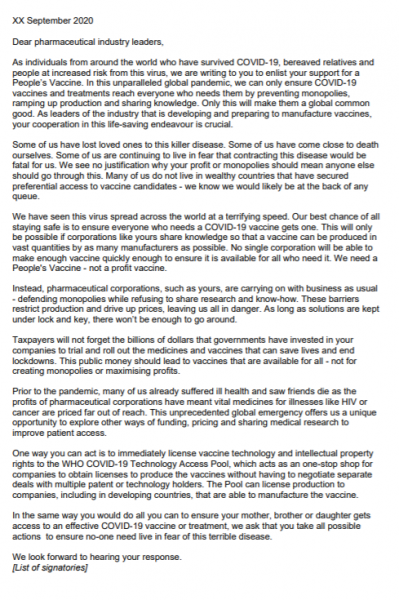In the 15 years since I went public with my diagnosis of HIV, it remains daunting to stand in front of a new audience and share my story. Though I expect them, I have never quite gotten used to the disbelief and shock I see in people’s eyes, the jaws gone slack, the overwhelming empathy. Because we have come such a long way in the journey against HIV, my story now is a happy one, meant to inspire people to know more, do more, support more so we can reach all those who still need access to prevention, testing, treatment. I do what I do because I hope others will feel more comfortable getting tested and treated for HIV if they see someone who has been healed, who is still embraced by their family, friends, colleagues and community.
And yet, while I have done it many times, and it’s a story with a positive bent, each time I share it publicly my heart pounds and my mouth runs dry. Early in my days of disclosure, a friend suggested I look for a smiling face in the crowd, someone who looked strong and positive, so I could absorb their energy and stay calm and upbeat even as I was full of fear.
Recently, the Atlantic invited me to a talk for World AIDS Day in Washington, DC, and I was particularly nervous. Having been at UNAIDS for nearly six years at the time, I was out of practice having my personal journey with HIV be the focus of my work. I knew a lot of people in the audience, professionally, but not personally. As I took the stage, I found myself shaking. I sat down, straightened the creases in my pants and scanned the room hoping for an encouraging looking face.
And then I saw Maeve. She smiled that radiant, confident smile that could say so many different things, as needed, in any moment. She seemed to understand that this was different, that it was personal, and that I was afraid. She nodded. And just like that, I was fine. I took a deep breath and told a room full of strangers and professional colleagues about what it’s like to live with HIV, to face the fear of death, the stigma, the treatment, the guilt that you have survived and others have not.
These last days, mourning her loss, I remembered a conversation I had with Maeve about the idea of survivor guilt. She pointed out that those of us who work daily to protect and extend the lives of others shouldn’t feel guilty, but rather, responsible—it was an idea that came from the AIDS community. I loved that idea. Survivor guilt became survivor responsibility to me because of Maeve.
Maeve’s amazing contributions to social justice, to global health, to policies that made people’s lives safer, longer, happier and healthier are multitudinous. A public health and human rights lawyer, Maeve’s deep commitment to immigrants, refugees, women and children, including issues of violence, and rights for lesbian, gay, bisexual, transgender and intersex people, was rarely matched. She inspired so many of us and served as a role model in myriad ways. Many words have been said about her contributions by many who knew her longer or better than I did. But perhaps because I knew her less well, and yet felt that she was there deeply, personally, profoundly for me when she could sense I needed it, several times, I can uniquely appreciate some of Maeve’s finest qualities. She had an almost extrasensory perception of what was needed, especially in delicate moments. She shared her strength, her courage, and in doing so, made difficult things seem possible, doable.
From Capitol Hill in the United States of America, where she worked for Senator Dianne Feinstein, to the Peace Corps in Mozambique, where she was a volunteer, to the United States Department of Health and Human Services and the United States President’s Emergency Plan for AIDS Relief, where she served in various roles for President Barack Obama, Maeve’s ability to advance social justice was remarkable. Her lifelong commitment to public service was infused with her effervescent spirit, her indefatigable energy and that famous smile, capable of lighting up a whole room and lifting your heart.
It is difficult to describe the loss one feels when someone like Maeve leaves us. The world hardly makes sense. Why would someone so talented, so helpful, so selfless, so beautiful in every sense be taken so early? It raises all kinds of existential questions. And creates a new type of survivor guilt in those of us who were not taken instead. But remembering that conversation I had with Maeve and, in her honour, instead of being sad, I will recommit myself to the work with an even deeper sense of responsibility to carry on, to continue to try to extend the kinds of elemental forces for good she so often instigated.
A granddaughter of the late Senator Robert F. Kennedy and grandniece of former President John F. Kennedy, Maeve embodied the best qualities of a global humanitarian. The effects of her efforts will be felt for generations to come. It will take many of us working together to fill the gaps left by Maeve. But she lives on through and in us. I know I, for one, whenever I think something is too hard, or too daunting, will conjure her smile, see her nod and simply get on with it, as I know she would do.
Maeve worked with many UNAIDS colleagues over the last decade and was a strong ally of the organization. UNAIDS deeply mourns her loss and the whole of its global staff extend our heartfelt condolences to her family.
Regan Hofmann, Director, a.i., United States Liaison Office, UNAIDS



